Eric Seufert, vice president of acquisition and user engagement at Rovio, in his last post addressed the question of whether it makes sense to spend money on advertising on the mobile Internet as opposed to advertising in mobile applications.

“The Parable of the Rich Man”, RembrandtThe original version of the material can be found on Mobile Dev Memo, a website dedicated to the mobile industry, run by Eric himself, who is also the author of the book Freemium Economics.
At the end of September, comScore released a report on the use of applications. It published several interesting trends that contradicted popular opinion regarding the mobile Internet. Mainly, we are talking about the following observation: despite the fact that the growth rate of the time spent by users on working with applications eclipsed the growth rate of the time spent by users on the mobile Internet within one time period, the growth rate of the mobile Internet audience turned out to be twice as high as the growth rate of the mobile application audience (it is important to note that the publication of comScore accelerated the appearance of an addendum to the report on the same issue from Morgan Stanley).
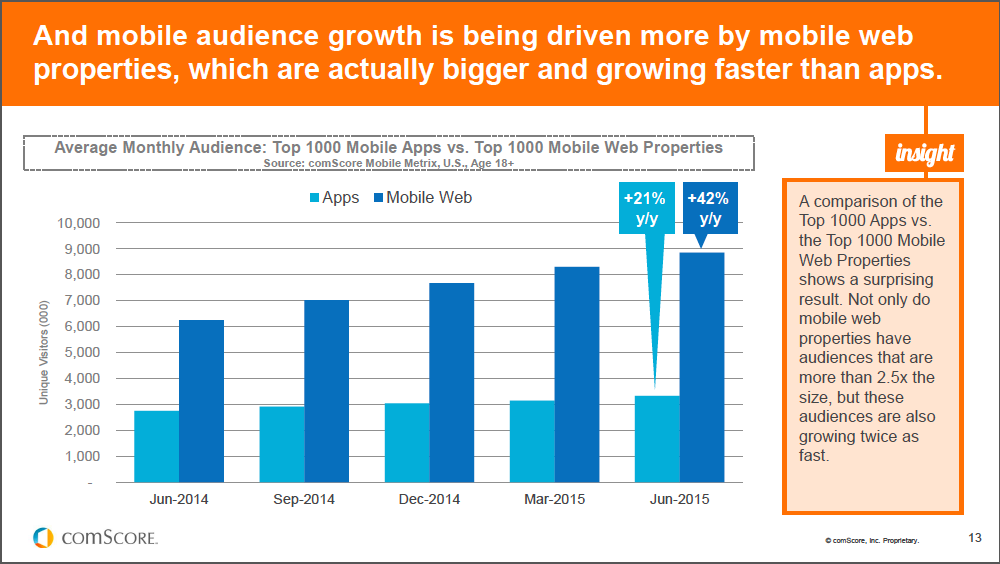
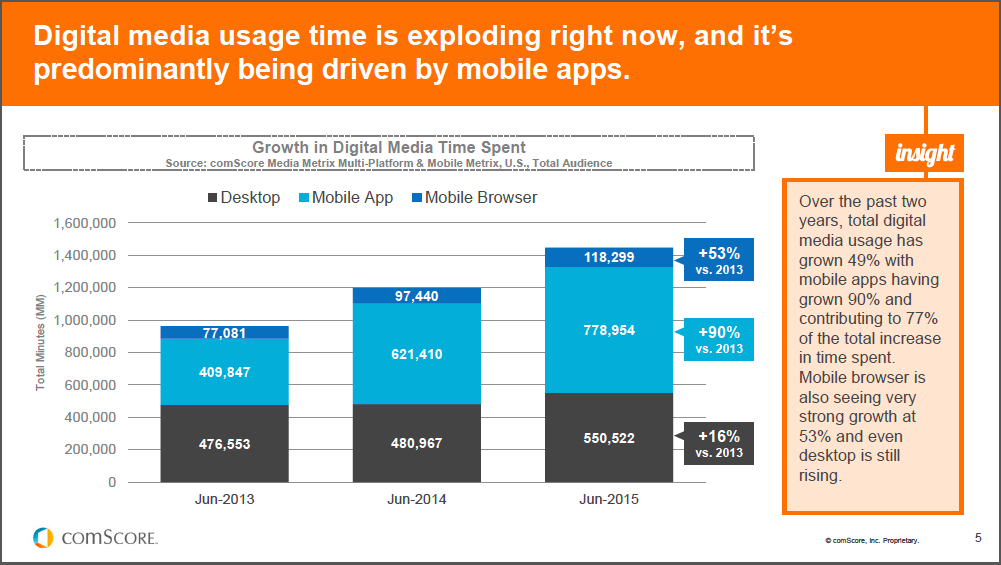
These data indicate that while the mobile internet promotes findability, apps promote engagement. This is confirmed by the fact that a small number of application developers account for most of the time spent by users on mobile.
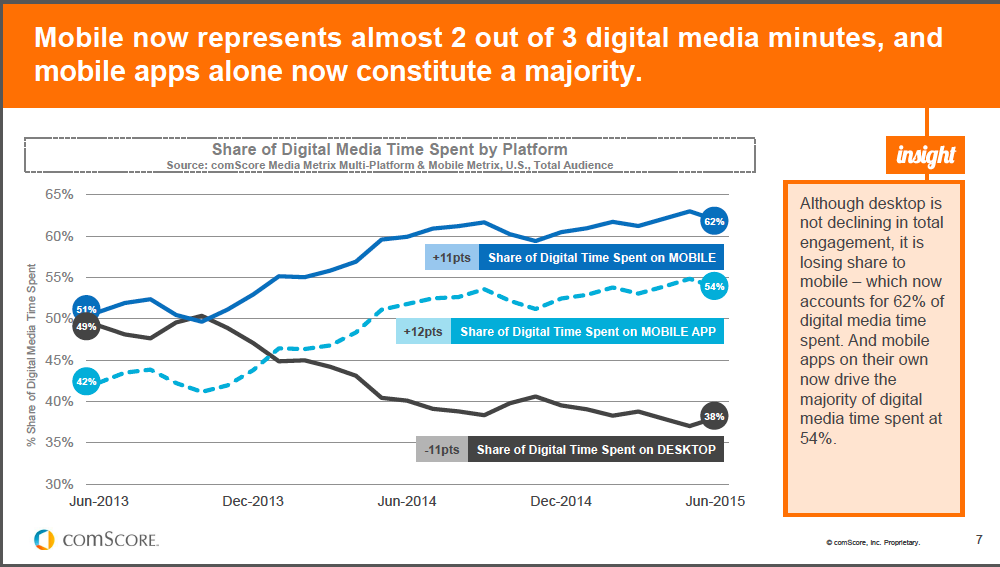
Despite the fact that this conclusion is not false, there is a much more significant fundamental aspect of the mobile application ecosystem that is not taken into account here. It lies in the fact that mobile is a market where the winner gets everything. In other words, it doesn’t matter whether findability and conversion work on the mobile web (undoubtedly, the mobile Internet is able to merge users into mobile applications). The main thing is that the companies dominating the cash tops of mobile and spending substantial sums on mobile marketing are doing this in fact only for the sake of additional revenue from being found. Yes, the time spent on mobile is increasing, but the number of applications on which time is spent is decreasing.
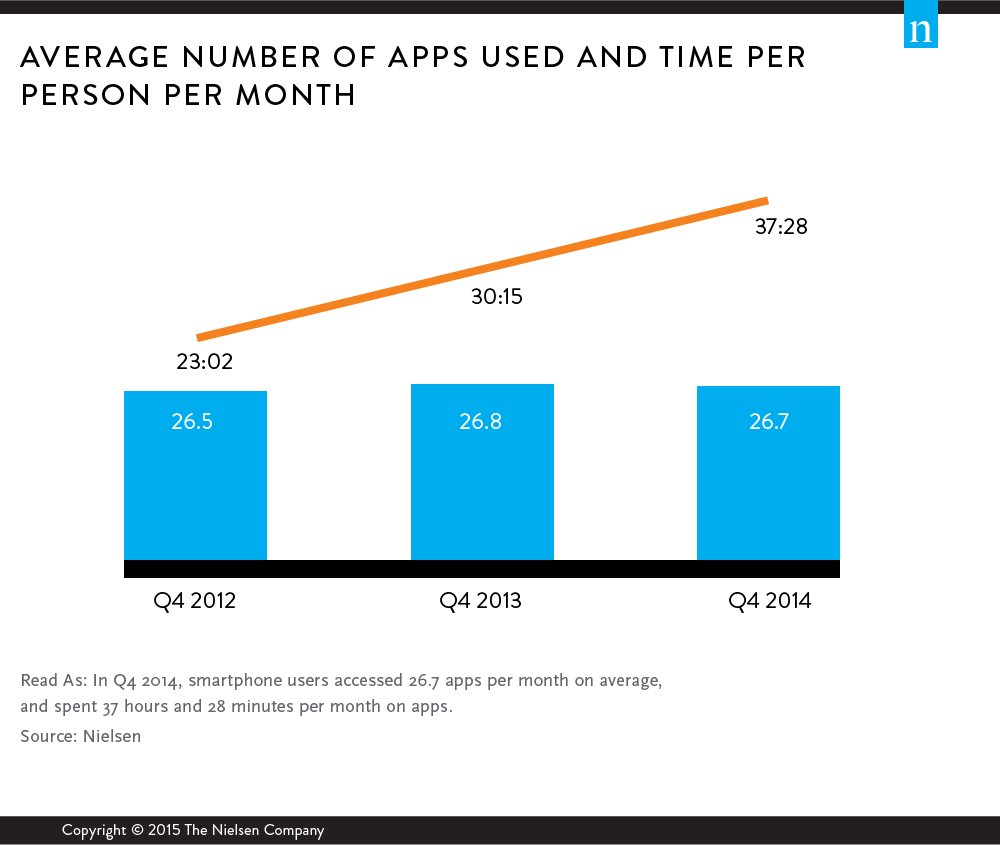
Does the traffic generated by mobile search help some applications? Yes, of course. But can it help these applications achieve results comparable to the effect obtained from advertising networks, the effect required today on mobile to achieve significant revenue? This is less clear.
Companies whose games are leaders in the amount of time spent on them by users, or 1) have a native mobile application that does not have a significant presence on the mobile Internet, or 2) had a large desktop user base when launched on mobile.
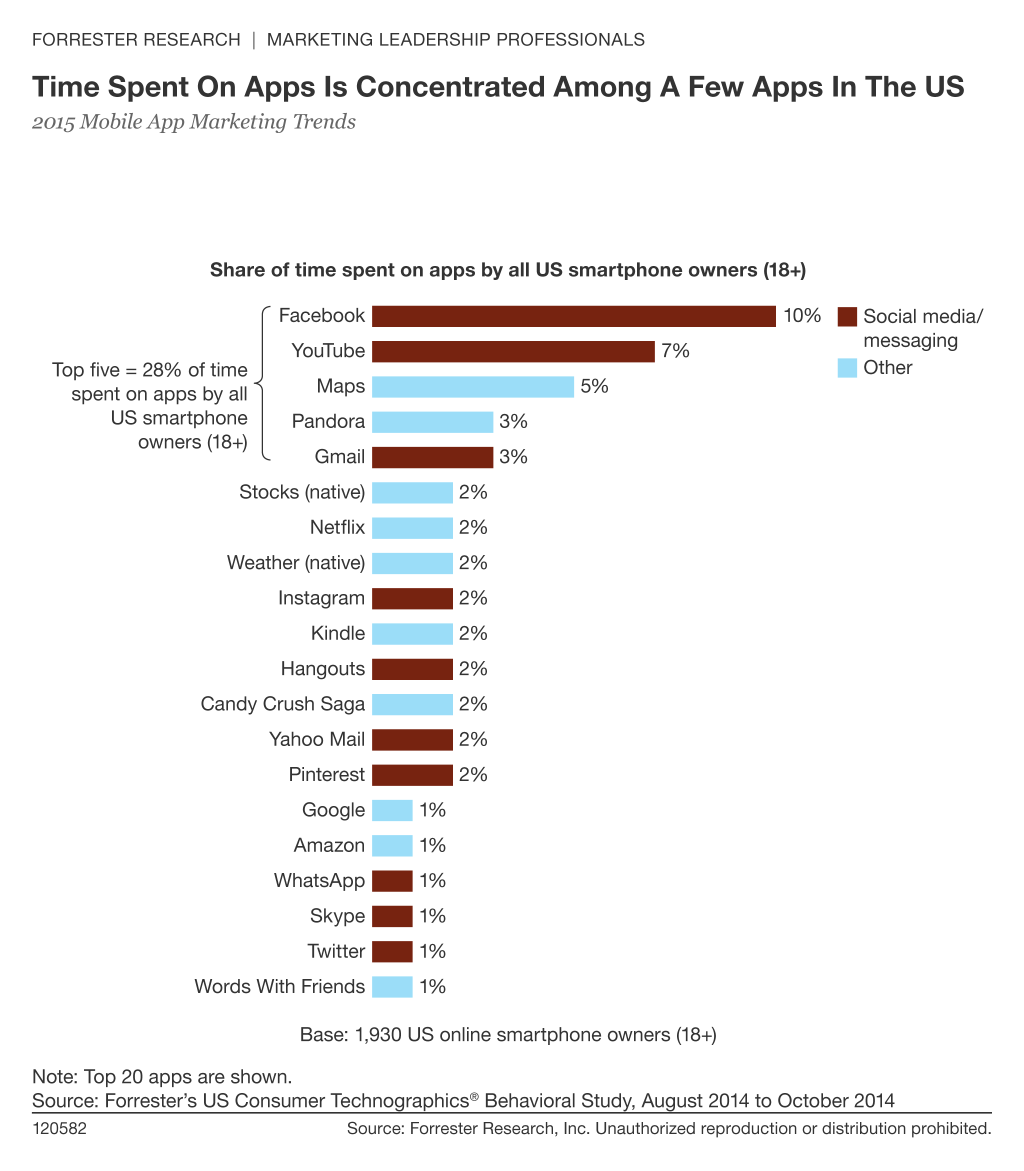
But perhaps the best answer to how the value of the internet is assessed by developers is where they spend their money to buy users. And they spend them mainly on advertising inside applications. eMarketer predicts that advertising spending on in-app advertising will be three times more than advertising spending on the mobile web by 2016.
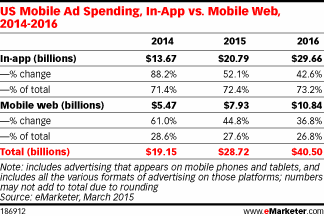
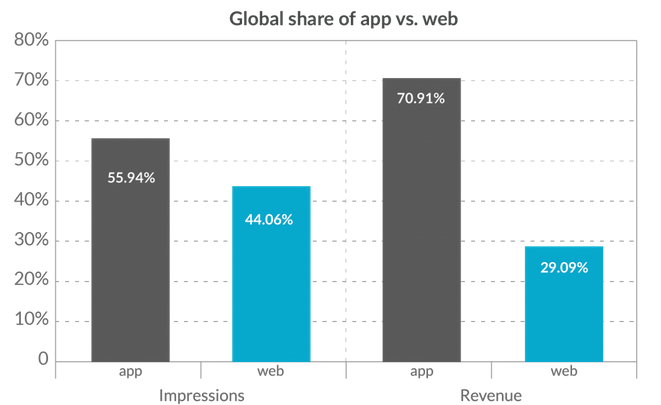
I repeat, none of this suggests that being found on the mobile Internet is insignificant or even negligible. It’s just not what brings the bulk of traffic to the largest (in terms of user base and revenue) applications. Given the fact that the mobile Internet accounts for only 30% of mobile’s revenue, the main imperative of every mobile developer is to spend traffic directly on the application. If the traffic from mobile search is converted to app users, then, of course, this is good for the developer. But with regard to mobile advertising inside applications, the mobile Internet may not be a very scalable and reliable source of traffic.
A source: mobiledevmemo.com
You will be able to learn about the latest trends in the gaming industry first-hand, personally meet and discuss working issues with leading companies in the game development and publishing market at White Nights Moscow 2015, which will be held on October 13-14.
